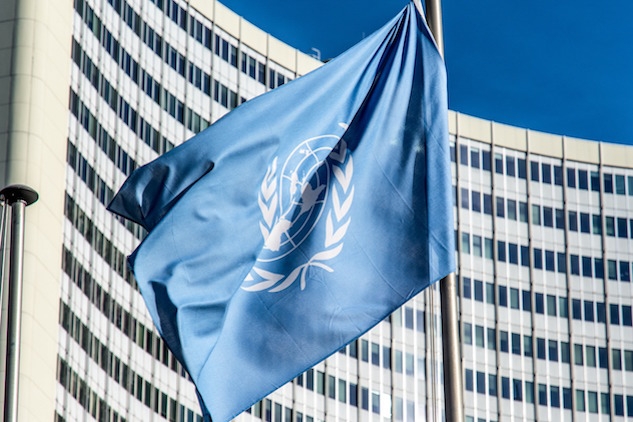
Britain’s UPR: an opportunity to advance workers’ rights?
On 4 May 2017, the United Kingdom had its human rights record reviewed for the third time under the Universal Periodic Review* (UPR), a United Nations (UN) government-to-government peer-review system. The UK received recommendations on a number of key areas for the fight against labour exploitation -– including human trafficking, migrant workers’ rights, access to justice, and business and human rights. Ahead of the government’s formal response in September 2017, we’re reflecting on some of the recommendations.
Human Trafficking
Several governments recommended improvements to the UK’s human trafficking response, with a focus on: strengthening the UK’s official support system for trafficked persons – the ‘National Referral Mechanism’ (NRM); ensuring access to fair trials; and improving efforts to support and rehabilitate victims. FLEX has shown that many trafficked persons wait a long time for a decision under the NRM and that has a real impact on their recovery.
Migrant Workers’ Rights
Seventeen recommendations focus on safeguarding migrant workers’ rights. Many governments recommended that the UK ratify the International Convention on the Protection of All Migrant Workers and Members of their Families and the International Labour Organisation Convention on Domestic Workers. During its first and second UPR reviews, the UK received multiple recommendations to join these conventions, all of which were ‘noted’. These mechanisms aim at preventing exploitation of vulnerable workers, and their adoption would contribute to the UK’s efforts to combat modern slavery.
Strong concern was shown over the tying of foreign domestic workers’ visas to their employers in the UK. Governments recommended a review of this practice and of current regulations to better protect workers from exploitation. This recommendation comes after the previous government refused to abolish the tied visa system during the passage of the Modern Slavery Act 2015.
Access to Justice
The UK was advised to ensure that legal aid is available to all in need, especially the most marginalised groups. Trafficked persons face significant barriers when seeking remedy in the UK, including restricted and limited legal assistance. Of particular concern to FLEX is the restrictions placed on lawyers with regard to the number of trafficking cases they can take.
Business and Human Rights
The UK received two recommendations on the need to ensure that British companies are held accountable to human rights violations in their global operations. FLEX has previously stated that British companies operating overseas should understand national labour protection frameworks to prevent forced labour and human trafficking in their supply chains.
Despite recent Government efforts to promote corporate transparency in supply chains, the UK Government is yet to enact legislation that denies government contracts to exploitative contractors. If the government is serious about combating exploitation in supply chains, it should accept these recommendations and collaborate with businesses and civil society on their implementation.
Weakened UK position since its last UPR in 2012
Prior to its third UPR review, the UK published an addendum to its 2nd cycle UPR National Report changing its position from ‘support’ to ‘noted’ on a series of recommendations. The UK Government retreated on important issues, including: standardising anti-trafficking responses across the UK, ensuring access to free legal aid to victims of trafficking, guaranteeing migrant workers’ rights and ending the criminalisation and indefinite detention of undocumented migrants. These changes show that the UK weakened its commitments to human rights since its last review in May 2012.
The UK has until September 2017 to respond to the UPR recommendations. FLEX hopes that the Government reconsiders its shift in previous commitments and supports third cycle recommendations that protect workers, migrants and ultimately all trafficked persons.
*The UPR is a peer-review mechanism in which all 193 UN Member States undergo an analysis of their human rights records every 4.5 years. Established by the UN Human Rights Council, the UPR aims to improve the human rights situation on the ground, by assessing each States’ compliance with human rights protection and addressing violations. More information on the UPR can be found here.
